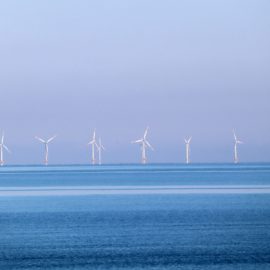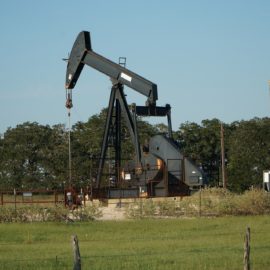
The author chose an offshore oil well I chose windmills. This is a call for more oil which we do not need but he has the right, in an “oil” state, to advocate.
Energy shortages around the world, compounded by the war in Ukraine, have caused uncertainty in the global market and made it clearer than ever that the U.S. must be energy independent to protect our national and economic security. However, what should be a renaissance for safely produced Louisiana energy has instead become a crisis, as misguided coastal lawsuits and national policies stifle the industry. Nationally, we are facing one of the most hostile administrations to the oil and natural gas industry to date. In May, President Joe Biden canceled three scheduled oil and natural gas lease sales in the Gulf of Mexico and off the coast of Alaska. Then, just a few weeks ago and after months of delay, the Department of Interior released a proposed five-year plan for offshore oil and natural gas lease sales that could offer zero sales. We have just over two months left to offer public comment and urge the Biden administration to change course. Oil and natural gas companies need assurance that there will be future lease sales. This is essential for energy companies to plan for the future, make new investments and give security to the Louisianians that rely on this industry for their job or small business. In 2019, the oil and natural gas industry directly or indirectly supported 11% of all private nonfarm jobs in Louisiana.
theadvocate.com
It is clear where this is going. Oil is our savior and we need to worship it.
At a time when the world is facing an energy shortage, these anti-energy policies are contributing to high prices at the pump and soaring inflation while harming our economic and energy independence. The administration claims its actions are necessary to reduce emissions, but the reality is that it is preventing innovation toward “net zero” investments. National leaders need to realize that in Louisiana the largest investors in clean, renewable energy are companies like ExxonMobil, Shell and Chevron, among others. Our industry is essential to providing families with energy they can use today and will continue to be essential to providing the low-carbon energy of the future. Even before COVID-19, Louisiana’s oil and natural gas industry had a lot of cards stacked against it. One of the strongest marks against our state is the legal climate, which trial lawyers have handily taken advantage of at every turn — hurting our job security and coastal initiatives. Louisiana’s legal climate has stunted development in state waters because it makes these projects too risky to take on. The good news is that there are actions we can take to support the industry and help our workers get back on their feet.
He says that the oil companies are making investments into renewable energy but he wants more oil.
The first step is to speak up about the administration’s lease sale proposal. We can all offer public comment and join the Department of Interior’s virtual briefings to encourage more lease sales. The second step is stopping unnecessary lawsuits that have been pending for nearly a decade. A handful of trial lawyers convinced a few parishes to sue our state’s most important industry and ignore the impact these misguided lawsuits would have on the livelihoods of hardworking Louisianians and small businesses across our coast, only seeking the massive payday that has never materialized. Louisiana’s energy industry prefers to put its money where it belongs — in the coast, not lawsuits and not paying trial lawyers. The industry is the largest private investor on the coast and is the primary funding source for our Coastal Master Plan. In 2020, Louisiana received $155.7 million for coastal projects, the highest possible GOMESA funding and a direct result of a productive energy industry along our coast. In fact, in 2020, 34 cents of every dollar in the Master Plan came directly from the industry. In the face of severe challenges, now is the time to come together as a state and support the industry that drives Louisiana’s economy. When we grow the oil and natural gas industry, we support the growth of other small businesses in our communities.
As one who looks at the state, I would have preferred he took a more evenhanded approach on mentioning the off shore wind farms and the solar arrays. Oil is not going away soon but it is decreasing and that should have been the message.



